Located in the southern part of Marche, in the province of Ascoli, the town of Offida is a place where history is an active part of daily life. The town’s history is ancient, centred around the legend of Serpente Aureo (Golden Serpent).
The legend of the Golden Serpent tells that the golden creature once crossed the streets of Offida, following the path of today’s Corso Serpente Aureo, bringing fortune and prosperity. It is believed that this serpent, perhaps a symbol of ancient deities and healing powers, contributed to the name of the town (linked to the Greek word “ophis”, meaning serpent) and inspired the name of the town’s theatre, which derives from an ancient pagan temple once dedicated to a serpent, the Ophite.
Offida’s enduring traditions are another key part of its character. The art of Merletto a Tombolo (bobbin lace – hard to translate!) has been passed down through generations since at least the 16th century, and it is a common sight to see local women practising the craft in the town’s narrow streets. The town’s history is even celebrated in its annual Carnevale festival, which retains pagan and medieval elements in its rituals. This combination of ancient history and living tradition provides an authentic experience for visitors seeking to understand Italian culture beyond its more famous destinations.
Piazza del Popolo
This is the most famous landmark, Piazza del Popolo is the main square of Offida and the centre of civic life. It’s surrounded by porticoed buildings from the 15th and 16th centuries, including the Palazzo Comunale, known for its brick loggia, and the Teatro Serpente Aureo, one of the region’s best-preserved historic theatres. The square regularly hosts markets, cultural events, and town celebrations, making it a practical starting point to explore Offida and understand its everyday rhythm.
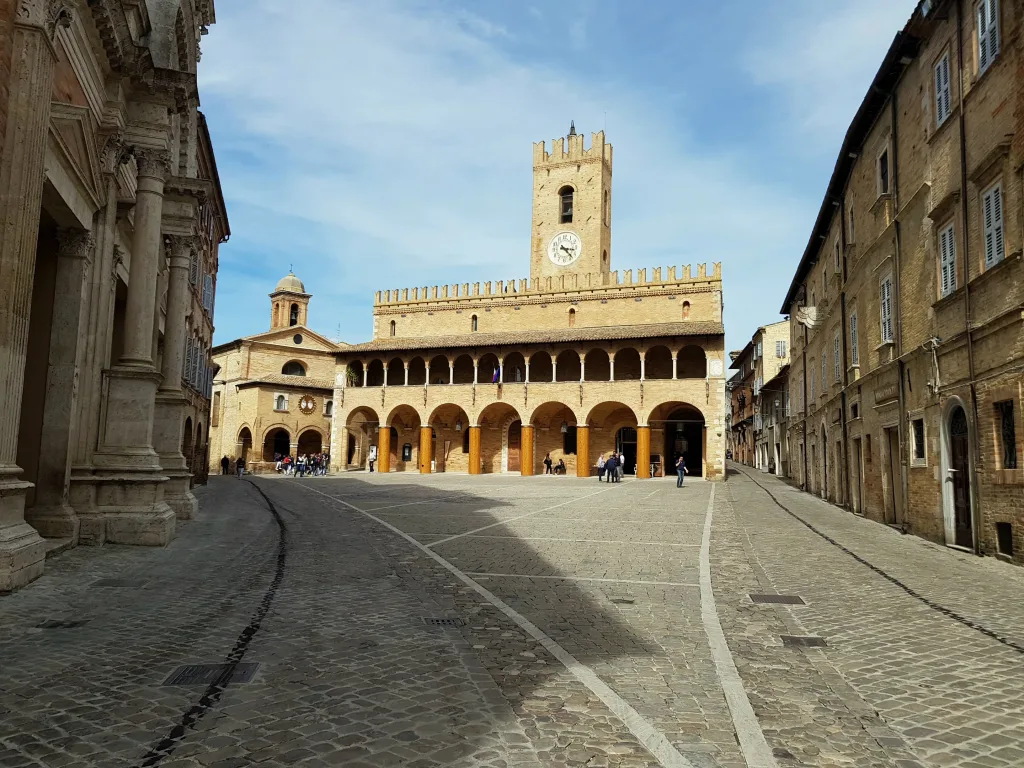
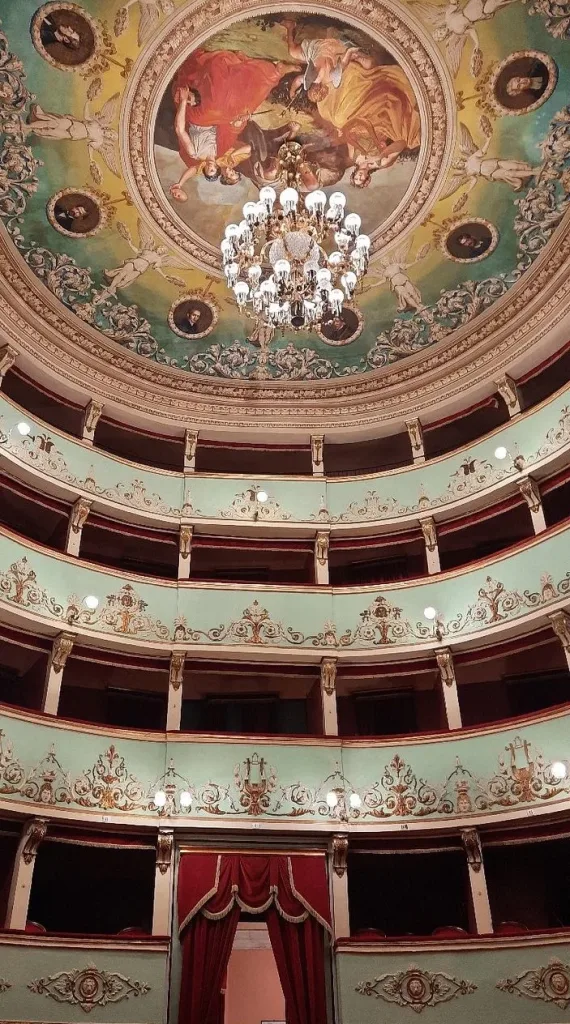
Teatro del Serpente Aureo
Located inside the Palazzo Comunale on Piazza del Popolo, the Teatro Serpente Aureo is a small 18th-century theatre built in typical Italian style. It was designed in 1820 by architect Pietro Maggi, with interiors decorated by Alcide Allevi. The theatre features a horseshoe-shaped hall with three tiers of boxes, a gallery, and rich stucco and gold decorations. Despite its limited size, it has excellent acoustics and remains in regular use for concerts, plays, and community events. The theatre is open for guided visits and is considered one of the best-preserved historic theatres in Le Marche.
Collegiata Santa Maria Assunta
The Collegiata Santa Maria Assunta stands in the centre of Offida and is the town’s main parish church. Originally built in the 14th century and later expanded in the 18th century, it combines Gothic and Baroque elements. The brick façade is simple, while the interior is richly decorated with stuccoes and frescoes. The church preserves several notable artworks, including a wooden crucifix from the 13th century and paintings by Simone De Magistris. The crypt beneath the main altar dates back to the early construction phase and shows traces of the medieval structure. The Collegiata remains an active place of worship and an important landmark in Offida’s historic centre.
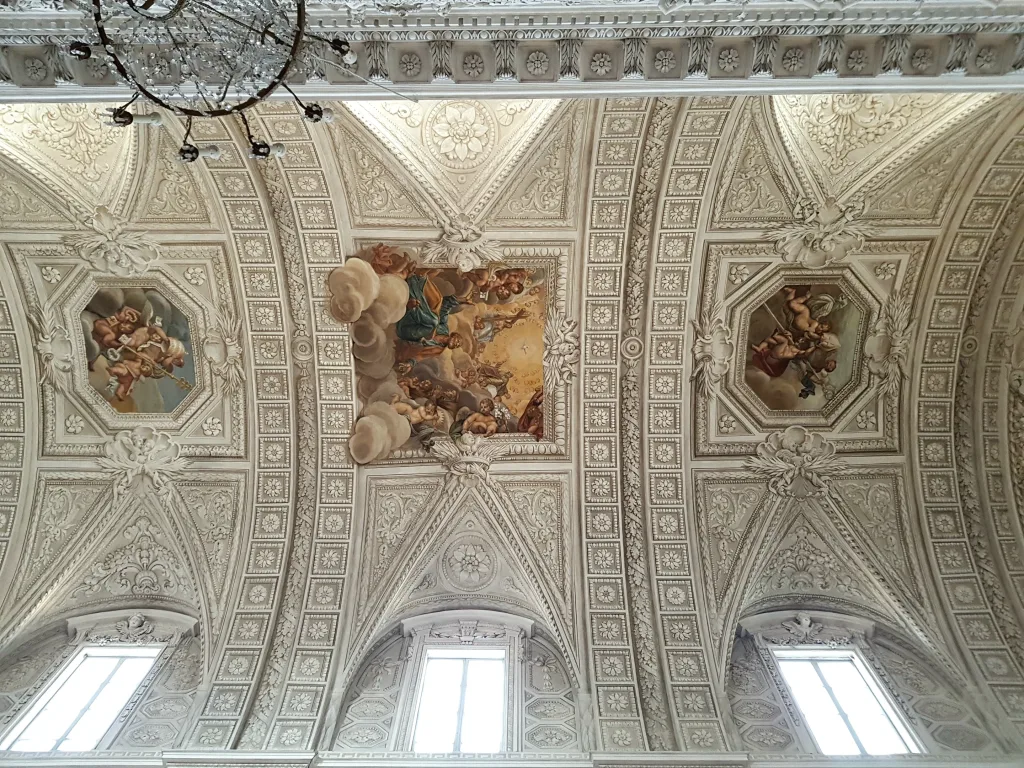
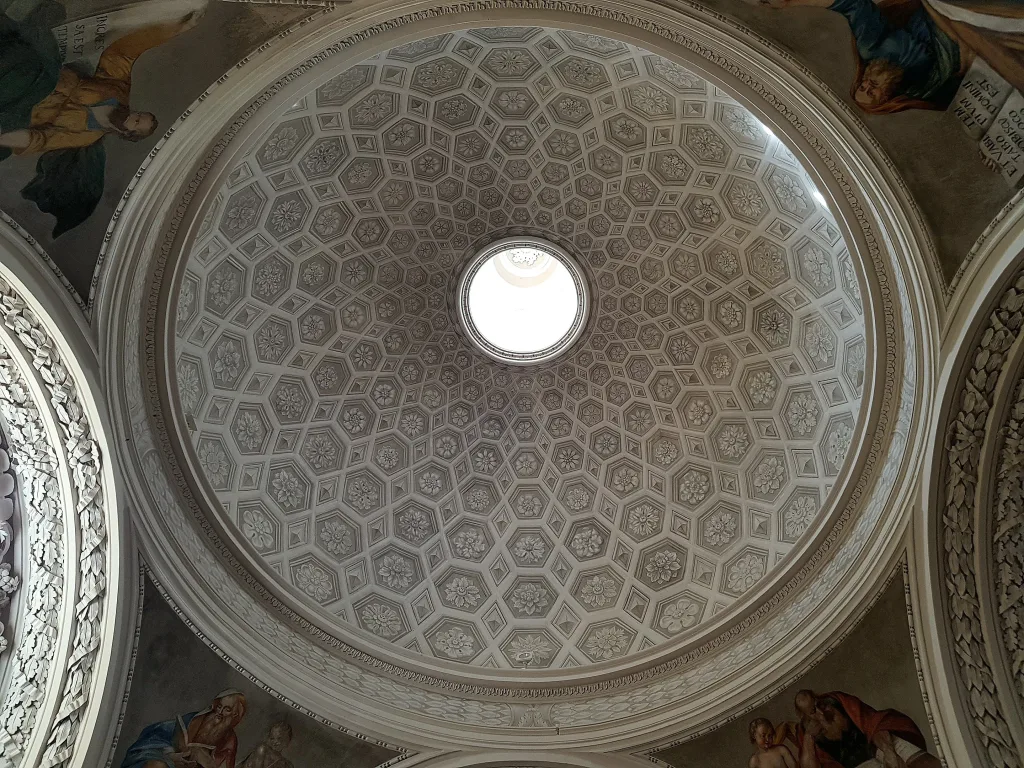
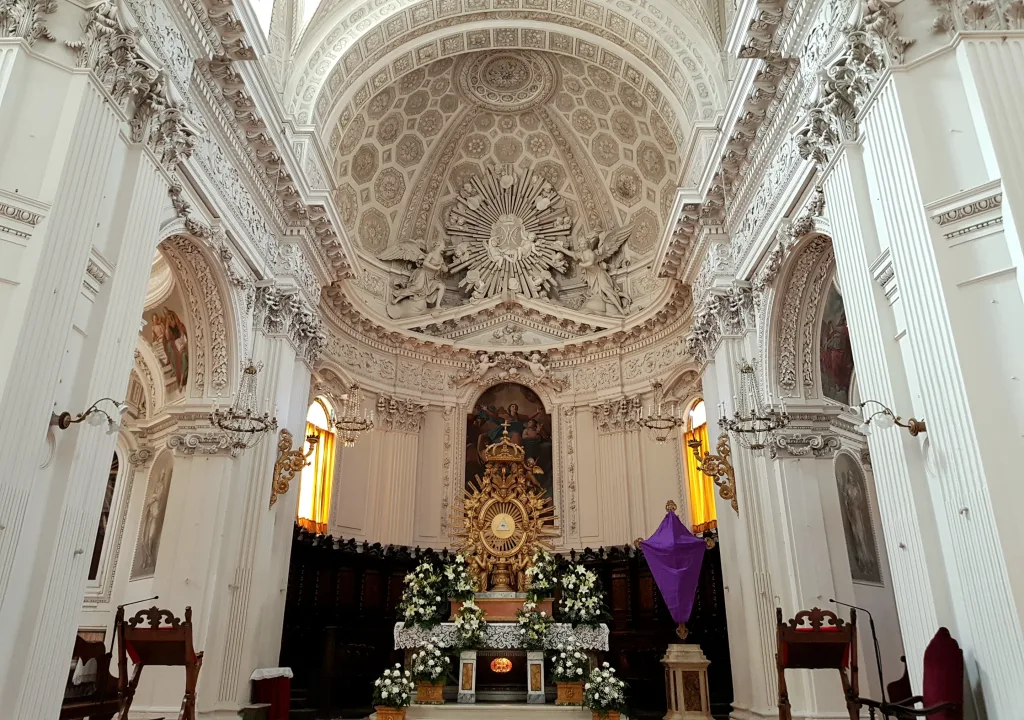
Santa Maria della Rocca
Santa Maria della Rocca is one of the finest examples of Romanesque-Gothic architecture in Le Marche. Built in the 14th century on the site of an earlier Lombard church, it stands on a high tufa rock overlooking the countryside. The exterior, made of brick and travertine, features three semicircular apses and simple decorative arches typical of the Benedictine style. Inside, the upper church has a single nave, while the crypt below preserves remarkable frescoes by the Master of Offida dating to the 14th and 15th centuries. The church is open to visitors and geting there is highly suggested for the panoramic views of the Piceno hills from its surrounding terrace, the photo of the wineyards paragraph was taken from there.
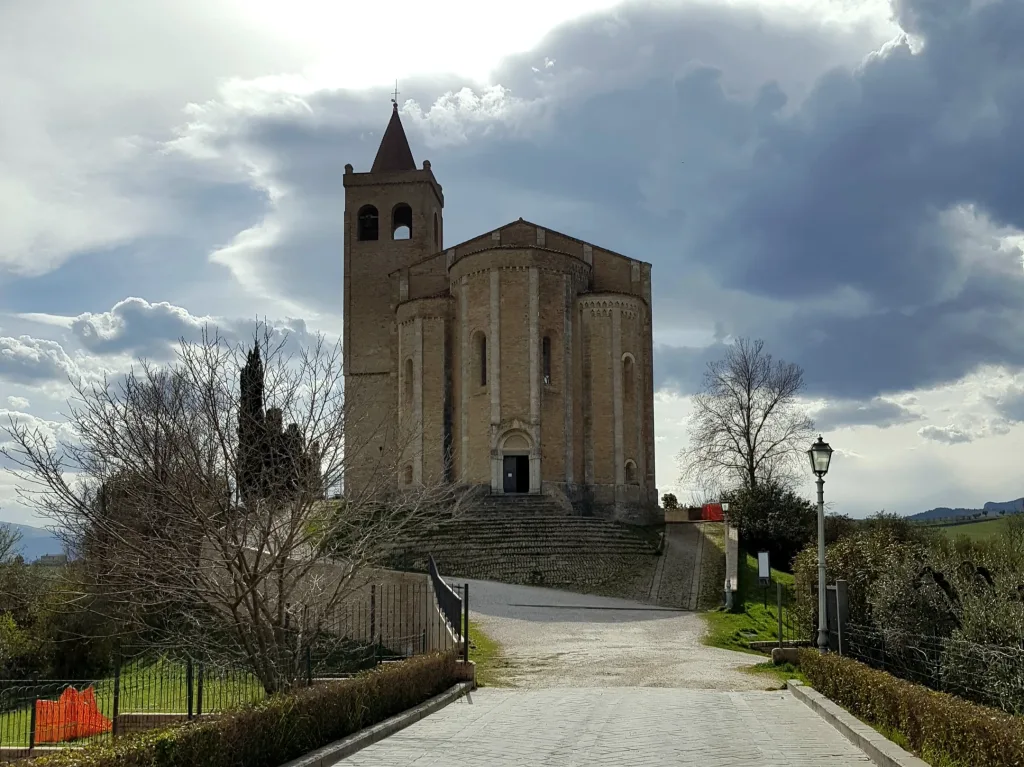
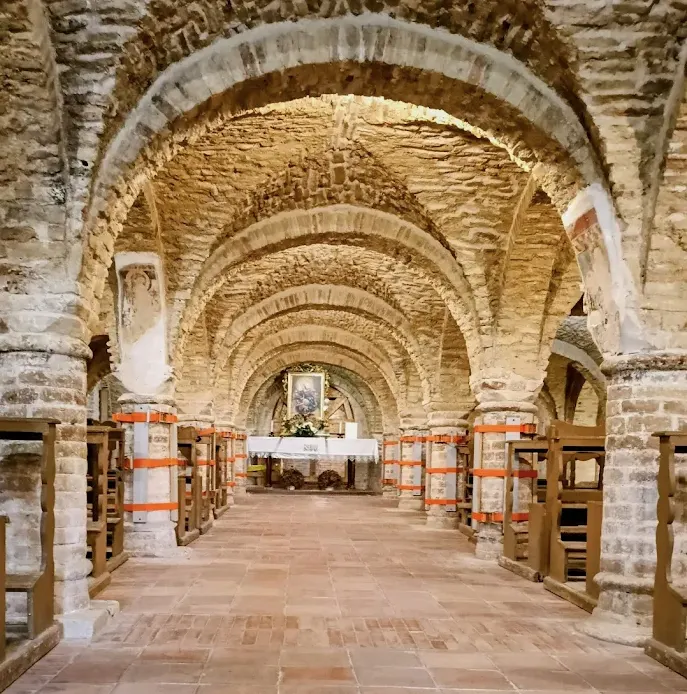
Museo del Merletto a Tombolo
The Museo del Merletto a Tombolo is dedicated to Offida’s long-standing tradition of bobbin lace-making, a craft practiced in the town since the 15th century. The museum is located inside Palazzo De Castellotti, a historic building in the town centre, and displays a collection of lace pieces, tools, and historical documents that trace the evolution of this handmade art. Visitors can see examples ranging from early lace patterns to contemporary designs, as well as demonstrations of the technique. The museum highlights how lace-making became an important part of Offida’s social and economic history and remains a defining element of its identity today.
What is Merletto a Tombolo?
Merletto a Tombolo is a traditional form of bobbin lace-making. It’s a handmade craft where threads are wound around small wooden spools called fusi (bobbins) and then woven over a tombolo, a firm cylindrical pillow stuffed with straw or fabric. The pattern is drawn on paper and pinned to the pillow, and the lace maker crosses and twists the threads around the pins to form the design.
The result is a fine, detailed lace used for tablecloths, collars, veils, and decorative items. In Offida, this craft dates back to at least the 15th century and became a key part of the town’s economy and identity. The skill is still taught today and can often be seen in demonstrations or local workshops, as well as in the Museo del Merletto a Tombolo.
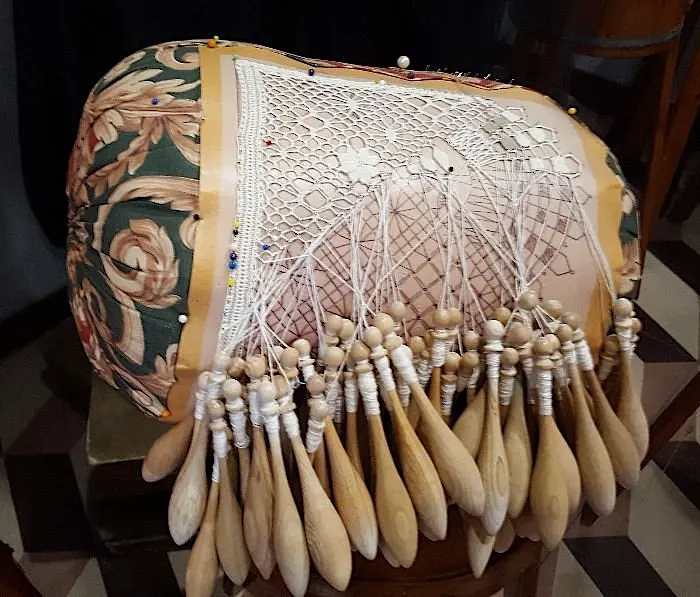
Wineyards and Wine
The countryside surrounding Offida is part of one of Le Marche’s most important wine areas. Several aziende vinicole (wine producers) are located just outside the town, offering tastings and guided visits. The area produces wines under the Offida DOCG designation, known for varieties such as Pecorino, Passerina, and Rosso Piceno Superiore. Pecorino is a fresh, aromatic white wine typical of the Piceno hills, while Passerina offers a lighter and more floral profile. Rosso Piceno Superiore, a blend of Montepulciano and Sangiovese, is structured and ideal for ageing. Many wineries welcome visitors for direct sales and tours, making wine tasting an easy addition to a visit to Offida.
Some tours and tasting can be booked online.
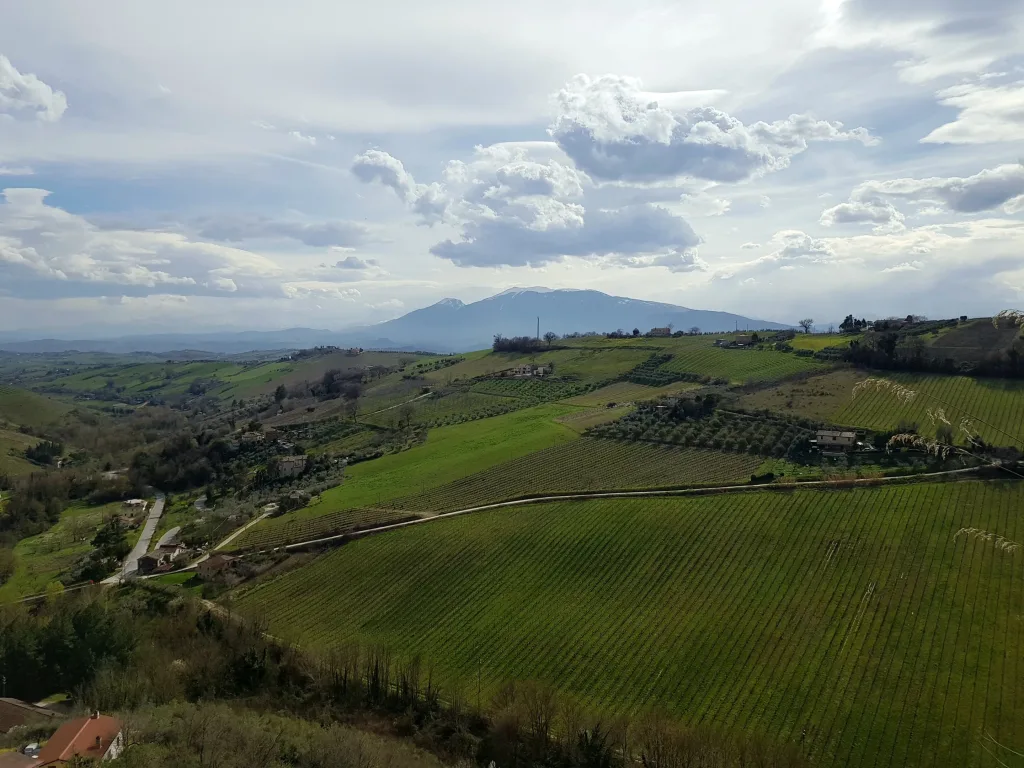
Festival and Events
- Carnevale Storico di Offida (February): one of the oldest in Le Marche, which takes place each winter before Lent. The highlights include “Lu Bov Fint”, a symbolic bull run through the streets, and the final day’s “Vlurd”, when torches are carried through the town and burned in Piazza del Popolo
- Festa del Vino (August): dedicated to local wines and food, with tastings and music in the historic centre.
- Festival del Serpente Aureo (September to December): it’s Amateur Theatre Festiva held in autumn mostly in the theatre/
Explore the Surroundings
Several interesting towns near Offida are worth visiting for a broader view of southern Le Marche. Ascoli Piceno, about 25 kilometres away, stands out for its elegant travertine architecture and the remarkable Piazza del Popolo. Ripatransone offers wide views of the hills and sea and is known for one of Italy’s narrowest alleys. Castignano preserves a medieval centre and hosts the summer Templaria Festival dedicated to its Templar history. Toward the coast, Acquaviva Picena features an impressive fortress and traditional straw crafts, while Grottammare combines a historic hilltop borgo with a lively seaside promenade. Smaller villages such as Cossignano provide quieter stops surrounded by vineyards and countryside views. Together, these destinations make easy day trips from Offida.
Accommodations near Offida
You can find many cheap accommodations near Offida following the links below:
Guided Activities near Offida
A list of guided and bookable activities can be found below:

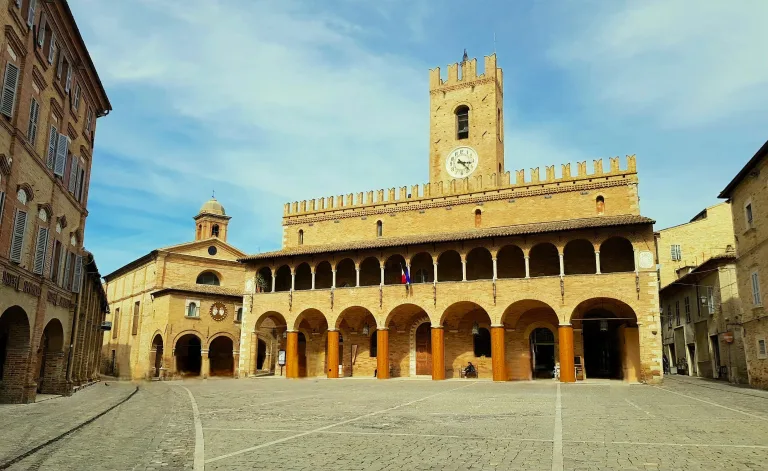
Comments are closed.